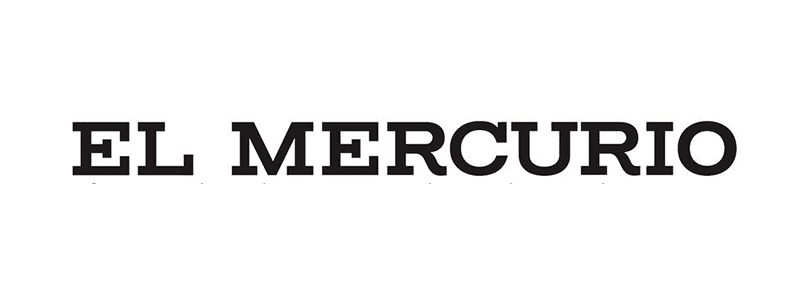We invite you to read the interview conducted by LexLatin to our Compliance Director, Yoab Bitran, where he commented on the challenges of Latin America in terms of compliance and Chilean companies as a result of the new Economic Crimes Law.
AZ‘s new Compliance Director has the mission of making the Chilean firm a regional benchmark in best practices. What are the challenges in Latin America?
Corruption is a sensitive issue in most countries in the region: Latin America has a corruption perception index of 43/100, according to data from the latest report of the Transparency International organization. The common denominator, in almost all cases, is the weakening of judicial systems.
“In every mass protest throughout the region there are claims about corruption. While several countries are moving forward with regulations, the law is a containment tool: the main challenge is how that law is enforced. There is an expectation that there will be a springtime of better ethical and anti-corruption practices in the countries where these regulations are emerging,” says Yoab Bitran, who has just been announced as Albagli Zaliasnik’s new compliance director.
In terms of risks, it is not only corruption that challenges businesses in the region, but also influence peddling and money laundering, and to these are added some new – “quite global”- risks such as cybersecurity and data protection, which 20 years ago were on the prevention lists.
For Bitran, if compliance is considered from the perspective of ethical culture, the challenges for companies are reduced.
“If you look at corporate scandals, the companies involved in malpractice cases had the compliance checklist, but they lacked the heart: the ethical culture. You have to have the checklist because rules are important, but by themselves they do not generate the change we want. The ethical culture becomes fundamental.
These scandals, such as Lava Jato, explains the lawyer, had in common that their compliance programs had very ambitious or unreasonable goals, according to the files.
“Those employees who had expressed divergent opinions or concerns about ethical and regulatory issues were retaliated against, ignored or dismissed. The lack of a speakout culture can do a lot of damage. Then, those same organizations defend themselves by saying that those who incur in the offenses are a group of bad apples, malicious, but at the end of the cases it is demonstrated that it was not a group, but a rotten tree, and that tree is the culture. Malpractice happens thanks to culture and in spite of it”, analyzes Bitran.

The Chilean chapter
“Thanks to movements such as Me Too or Ni Una Menos, we see that new risks, such as harassment at work, have been taken into account in the heart of companies. It is not that these risks did not exist before, but that fortunately awareness has been raised now. In Chile, one of the most important laws of recent times is the Karin Law”, explains Bitran.
It also highlights the impact of the Economic Crimes Law, which has just entered into full force and effect on September 1 in Chile.
“In some way, it enters into the context of similar regulations to other countries, which are often triggered by the access to the Organization for Economic Cooperation and Development. The OECD forces them to hold companies, legal entities, criminally or administratively responsible for crimes that occur within them. In this sense, in regulatory terms, there is quite a lot of alignment in the region”, he explains.
With the entry into force of Chile’s Economic Crimes Law, which criminalizes business-related offenses and extends liability to legal entities, the catalog of offenses has been expanded to more than 250.
“The law is a tool and we are yet to see if it is effective or not. We have to understand that it arises in a rather hot climate, of certain effervescence and social outburst, in the framework of political scandals for illegal financing”, the lawyer adds.
Beyond the checklist
“A compliance program is useless if it is separated from operations; it has to be completely integrated with the business so that employees do not see it as an obstacle or a brake, but rather as a strategic partner and a competitive advantage. Therefore, the most challenging thing is not to create and apply a compliance program, but to create an ethical culture,” he says.
To measure the effectiveness of a compliance program, compliance has to be part of the decision-making table. But what happens when those ethical decisions conflict with financial results?
“There may be decisions that are less profitable in the short term because of ethical considerations. However, there is plenty of evidence to show that, in this generational shift in the world of work, consumers and investors are taking into account the reputation of companies. Therefore, it is more profitable to do the right thing on a sustained basis. Companies with an ethical culture and effective programs are more profitable. Compliance programs must be evaluated and measured; today the best standards are in the U.S. Department of Justice guidelines,” he shares.
Yoab Bitran’s profile
Yoab Bitran will be in charge of designing a value proposition based on the prevention and active management of legal, regulatory and reputational risks for companies and organizations in Chile.
“I am excited to maintain and enhance AZ‘s leadership in our country and become a regional benchmark in compliance best practices. The firm has been a pioneer and visionary in the region, so for me it is a great professional challenge. We have the opportunity to have an important impact in raising ethical standards in Latin America, taking advantage of our role as founders and coordinators of the Compliance Latam platform”, said the master in Business and Corporate Criminal Law (Universidad de Chile) about his role.
Together with Rodrigo Albagli, partner of the Chilean firm, Yoab will lead the compliance department with a mission: to put his 15 years of experience at the service of promoting ethical leadership and best practices in companies and organizations.
Yoab Bitran is a lawyer and holds a master’s degree in Business and Corporate Criminal Law from the University of Chile. He also holds an LL.M from Boston University. Throughout his career he has served as academic director of the Compliance LatAm Diploma of Thomson Reuters and has been a professor of the Legal Management Program LatAm Diploma of the Pontificia Universidad Católica de Valparaíso (PUCV).




